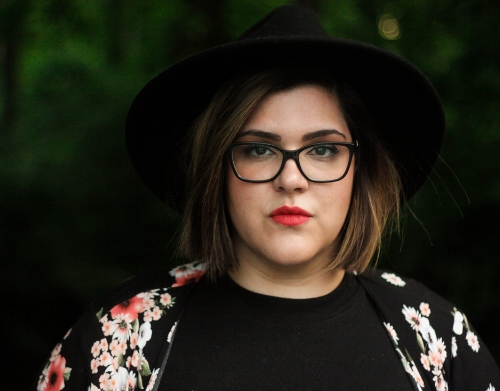Wilson Harwood
Sprinkling tunes with a tingly twang, Wilson challenges his musicianship by taking risks in his career.
Banjo Boss
Sprinkling tunes with a tingly twang, Wilson challenges his musicianship by taking risks in his career.
The early stages of Wilson’s music career begin with playing in a band for 5 years, accumulating 2 albums.
Then suddenly, Wilson made a choice to challenge himself as a musician and decided to operate solo style. He admits learning how to switch to a solo singer songwriter career was a long process, but his persistence gave Wilson the invaluable knowledge of different outlets for his specific genre. Relearning everything was a definite growth period.
Having released his second solo album Rooted In You in 2017,
Wilson earned the bragging rights (though he doesn’t use his rights to brag) to attest that he produced the entire set by himself, taking another large leap in his musicianship. The sound consists of layered instruments, all played by Wilson, except for the cello, bass, and background vocals. A really fun and wonderful experience, he used his home studio for his album science lab.
Though he had a lot of people warn him it was a bad idea to self-produce, Wilson recognized the perfect opportunity to experience experimentation. Not taking the heavy promo route, Wilson decided to just kind of see what would happen organically once he released it. The album earned some success, so now Wilson’s new musicianship goal is to learn different and unique ways to release new music.
Lightning Round
Second album Rooted In You: based around nature, pastoral/rootsy vibe, used organic nature to guide the lyrics, aiming for visceral images while also keeping it simple, working with the senses
Thoughts on writing solo: “Usually I’ll be practicing and then playing; then lyric progression or a lick will come along. And then bam! There’s a song, more or less.”
Thoughts on co-writing: “It’s different because it allows you to write full songs in 3 hours, but co-writing in Nashville me taught that, ‘you say what you mean, and convey what you need.’”
Years in Nashville: For nearly 2 years, Nashville has been Wilson’s home, having previously come from Colorado and lived there for around 10 years.
HOME: Wilson discovered us through meeting Logan at a Family Wash open mic night, and Wilson grew an interest to join HOME. A few months later, he filled out the form, and asked to check it out. This all occurring during the time headquarters was being built, around 8 months ago.
First CD owned: The Offspring, Americana; song—“Pretty Fly (For A White Guy)”
Other inspiring music: Green Day, Real Big Fish, Rancid, 90s rock, Blink 182, pop-punk scene The Grateful Dead, String Cheese Incident, Phish, some Latin world music, old 50s rock and roll, The Temptations, James Brown, etc.
Instruments: Learned to play violin at 5, clarinet and guitar at 9, and banjo 18.
Interestingly, Colorado has a huge bluegrass scene; the mountainous terrain serves as the perfect landscape for roots-y music.
During his time there, Wilson learned how to play the banjo as a freshman in college, with the intent to play with other freshmen who are identically into bluegrass music. In addition to jamming with buds, Wilson also played the banjo for a large number of weddings, since banjos are a huge thing in weddings in Colorado, apparently.
Wilson’s banjo playing experience additionally includes DIY touring both solo and with bands.
Examples of some tours:
Midwest — through Wisconsin, Nebraska, Iowa, and Kansas
West Coast — from LA, to Seattle and Boulder
East Coast — from Washington, D.C. to New York
Not sure if touring was his thing, Wilson packed up one final time and travelled to Nashville to build a studio and start producing.
Unfortunately in the mainstream side of music, banjo isn’t exactly the hottest item on the market.
Amazing artists exist, such as the Punch Brothers, but for the most part, they’re underground. Of course the banjo had its huge moment in the recent past with Mumford and Sons on their first and second records, but fans of the instrument, like Wilson and myself, are hopeful that the banjo will rise again.
For the time being, Wilson’s goal is to compile a library of banjo loops, compatible with electronic music and other genres, to sell to producers in Europe.
Aside from the banjo, Wilson utilizes his home studio for his production company, Elevated Music. Though the extra bedroom in his rental has a lot of bang for its little amount of space, Wilson has slowly begun to use the studio at HOME for some of his projects.
Some names on Elevated Music’s roster include: Claire Kelly, Emma Brooke, and Boyce Thompson.
Admittedly, working synch licensing takes up most of Wilson’s producer time.
Right now, he has 2 agents to whom he pitches songs. The business is super competitive, though not as competitive as gigging and touring; the business requires more patience than anything else. Media synch requires making as much content as you can to sound its absolute best, throwing it out into the world, and then trying to have it land in the right hands.
Having only played in the game for 2 years, Wilson acknowledges the main market is in LA, though it is growing in Nashville. An agent in LA, called MW Music and Wine, represents all of Wilson Harwood’s music as an artist. The marketing company pitches songs to commercials, film, tv, as well as books artists to play for high end wine events.
Reach out to Wilson on the socials and say hi, or offer to collaborate on a project!
Links:
https://www.facebook.com/wilsonharwoodmusic/
https://twitter.com/wilsonharwood
Written and edited by Andra Ingram
Michelle Pereira
Sleek songwriter Michelle Pereira makes strides in Nashville’s music industry by bringing in her unique background.
This Bird Has Flown (From Canada)
Sleek songwriter Michelle Pereira makes strides in Nashville’s music industry by bringing in her unique background.
Traveling all the way down from Toronto, Canada, Michelle Pereira (PURR-AIR-UH) moved here fresh out of college in 2015 with a degree in vocal jazz performance in order to continue studying music through a 6-month program at Blackbird Studios.
Excited to experience a new city in an entirely new country, she moved to Nashville without knowing anybody, starting from ground zero, but with 100% moral support from her parents and family.
Though Michelle appreciates being in a new country with new opportunities, she reminisces that Toronto is a cool, multi-cultural spot with bars playing varied music genres. Plus, Michelle does occasionally miss the Portuguese bakeries to curb her authentic prerogie craving, since she comes from a Portuguese-European background and wishes for a taste of home.
As far as her melodic interests, Michelle knew from a very early age she wanted to do something in music. For fun, she would sing during family gatherings.
Her folks would ask her to belt “I Hope You Dance” by Leanne Womack. Later, she took vocal lessons (one year she took lessons from Shania Twain’s former coach), guitar lessons, and taught vocal lessons for a handful of years. Funny enough, she’s the only musically inclined person in her family, though she attributes her interest and talents to both her parents and sister who have a love and admiration for all kinds of music .
Even though she studied jazz performance, she didn’t grow up listening to jazz, besides Frank Sinatra, so she took a chance with the genre and loved it.
Like most of us, Michelle’s early passion for music did not necessarily guide her to a specific career path.
During a class at Blackbird one day, recording a song writing session, Michelle wondered what the songwriters were actually doing. They responded, explaining they were recording songs they wrote, but the songs are demos to be pitched to major potential artists to record and perform.
Once Michelle realized that recording and pitching demos was an actual thing people could do as a career, she was instantaneously driven to figure it out how to stay in Nashville long-term as a Canadian and work post-Blackbird program. Luckily, she found the grace of NSAI, who helped her attain a work visa. Even today, Michelle recognizes that she owes a lot to Bart and everyone over there, as they’re the whole reason she is able to stay and work here, living out her goals and dreams.
Having found her hustle, she started writing music every day, mostly two times a day. Of course, at the end of the day, constantly writing became very exhausting. Michelle admits that at first she overworked herself writing and doing gigs every day. She realized she needed to take a step back and re-evaluate her writing focus, which boiled down to choosing quality over quantity.
These days, Michelle attests to the importance of finding balance between working and relaxing, taking one day of the week for herself. In such a competitive industry, it’s tough to justify a work break, but that precise balance is key.
The following is Michelle’s current weekly work/relax schedule:
Typically, she works five days a week songwriting, mostly Mo-Fri, but uses Wednesdays for administrative tasks. Wednesdays have their own special tasks: catching up on emails and running errands.
In Michelle’s experience, Mondays are bad for sending emails since it’s the first day after the weekend. On Tuesdays, most people are still catching up on weekend/Monday emails, so Wednesdays are golden for immediate responses.
She prefers writing new stuff in the morning, around 10AM-1PM, and she takes the afternoon to recoup and put on her idea cap for the following days, planning ahead. Afternoons are also useful for balancing housework/the gym/meals and networking/playing gigs/going out to see gigs, such as Whiskey Jam Monday.
As a songwriter, Michelle doesn’t work in an office, but in order to have the productive mentality of coming into work, she walks into HOME and uses a room or the recording studio to complete her tasks.
One of her current projects is a startup business venture called Songster Catalogue,
which is a downloadable file to help songwriters and session writers organize all the itty-bitty details of their song catalogue. Michelle created and designed the entire service simply because she understands the importance of organization and professional appearance as a songwriter, which gives a competitive edge. Though, first and foremost she genuinely wants to help other people.
The reason Michelle is a HOME member is also due to the kindness of NSAI, specifically from our very own Trina, who used to work there and has a résumé longer than the rush hour drive-thru line at the Brentwood Chick-Fil-A.
In addition to Michelle’s other pursuits, she is currently singing with The Song Suffragettes. Already having a connection due to her thorough networking efforts, she auditioned, joined the crew, and has since made even more invaluable connections. Michelle thoroughly enjoys singing with the group, who are all incredible women. The fact that The Song Suffragettes are well known in Nashville doesn’t hurt either.
Last time I saw Michelle, which was in late July, she was recording at HOME for an acoustic project she will add to her extensive repertoire.
Her latest news is the anticipated release of her single, “Worthy,” which will be available everywhere on September 28th!
Links:
https://www.michellepereiramusic.com/
https://www.linkedin.com/in/michelle-pereira-45aaa512b/
https://www.facebook.com/MichelleMusicTO2
https://twitter.com/MichelleMusicTO
https://soundcloud.com/michellemusicto/tracks
https://www.instagram.com/michellemusicto/
https://www.youtube.com/user/MichelleSP23/videos
https://www.reverbnation.com/michellepereira?profile_view_source=header_icon_nav
Written and interviewed by Andra Ingram
Perrin Lamb
Refusing a 9-5, sync license pro Perrin Lamb pioneers his own career
Sync City
Refusing a 9-5, sync license pro Perrin Lamb pioneers his own career.
Picture a young chap heavily involved in school musicals and church choir growing up in the rural southeast US.
Five-part harmony Sunday hymns christened him into the world of music, standing in the pews and singing comfortably in the bari-tenor range. His dad’s old truck did not have a radio, so a transistor radio picking up 2 AM stations hung from the rearview mirror. Riding around, he listened to Willie Nelson and Johnny Cash.
Around college graduation, the now young man discovered the likes of The Beatles and David Bowie on account of his songwriting comrades. A Mississippi studio dweller buddy gave him positive feedback on his music skills at the 23 or 24-year-old mark, before he had written any songs or had given any serious thought to pursuing music.
Back in 2000, the turn of a century and the turning of a page, at 25 the young singer/songwriter moved to Music City, USA. Having only one or two contacts in the city of Nashville, the move here led to shadowing writers to learn the trade and eventually blossoming as a songwriter. Ten years later, that songwriter, by the name of Perrin Lamb, is grateful for having made the decision to become a songwriter, giving him the ability to support his family without clocking in and out at an office.
Though Perrin pursued an indie singer/songwriter career for at least baker’s dozen of years, he now focuses on his latest project: partner and A&R guy of Sorted Noise, a sync licensing company riding the Nashville vibe.
Perrin’s Business partner and one of the founding members of TONS, Josh Collum opened Perrin’s eyes to HOME through a TONS event held at our headquarters, though he cannot recall precisely when the event took place. Having been on the crucial lookout for a studio home base, Perrin had an enlightening chat with Logan and concluded HOME would be a good fit for his needs, though Perrin admits he and HOME are still in the early dating phase.
I asked Perrin how he would explain sync licensing to someone who doesn’t know the inner workings of the music industry.
He responded:
When you see a TV show or movie and there’s a pop or instrumental song in the background, those songs have to be licensed. The shows don’t own them, so the TV or movie company has to pay a fee to use the music; they have to license it. As far as price, there is a scale, based on the length of the track and whether or not there are vocals, etc. To choose a song, the music supervisor for the show or movie finds music and presents the director or a similar worker with the best music for each scene, based on what the director says the scene needs.
Sorted Noise comes in the picture when the supervisor either needs to find songs, or needs the sync license for the song. Sorted Noise will then negotiate the best price for the song’s artist, so the show or movie benefits as much as the musician does. Part of the licensing fee goes towards commission for Sorted Noise as well. Since sync does not necessarily correlate with music industry trends, so the songs synched with visual media are not always hit songs. Popular or underground, the visual directors seek what song fits best in a scene, since choosing the wrong song can ruin the mood of a particular scene.
Perrin enjoys working with TV production the most, since they tend to use more music with more of an artistic license as opposed to an attention-grabbing ad, or a blockbuster film that will hire a composer to create a score.
He and his business partner give more attention to Nashville artists simply because they are passionate about the community we have and believe in the city’s artists. In fact, about 99% of the artists they work with are independent, mostly discovered through trusted sources. Not to say that Perrin dislikes music submissions, but the quantity can become overwhelming.
What Perrin loves is discovering an artist and working with them to help develop their career, seeing them grow and blossom. Since Perrin himself was once a beginning artist, he understands the amount of gut it takes to submit music, so he always willingly gives submissions a listen. His job does include saying no to some artists, but according to his business partner Josh,
a person’s success is shaped by how many awkward conversations they’re willing to have.
According to Perrin, sync licensing is hugely important for an artist’s success, especially today with the state of the music industry. Case in point, all major publishers and labels now have sync teams, whereas before sync was basically an afterthought. One common complaint today is the drop in physical sales or the close-to-no-payoff of streams. With show and movie streaming services, however, sync opportunities increase by the day. A sync fee holds a quantifiable amount of money and does not fully depend on interaction with music listeners.
All in all, the importance of sync licensing is far more predictable and reliable than aiming for a radio or Spotify hit.
Written and interviewed by Andra Ingram



















